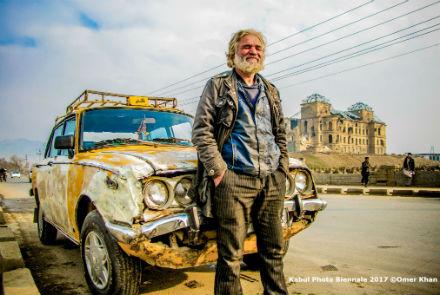Baby Boomers (those born between 1946 and 1964) comprised the largest and most influential generation in history, particularly in the US, where I migrated many decades ago. But since I returned to my native Afghanistan to work as an interpreter, I have wondered, “Was my version of the Baby Boomer generation in Afghanistan a force for good or evil?”
The answer: probably a dose of both. Our blind idealism in the 1960’s led to many fatal missteps, but the changes we made and lessons we learned can be helpful to subsequent generations. Thus, I give you the following story.
I was born during the reign of King Zahir Shah (1933-1973), whose era was, as Charles Dickens would say, the best of times and the worst of times.
The best included a constitutional monarchy modeled after the British Magna Carta, complete with trappings of Western democracy. The worst was a centralized economy copied from the Soviet model.
Landlords with large parcels of land held sway on government. Afghanistan’s parliament became a den of tribal leaders, landlords and clergymen. Corruption, social injustice and economic stagnation ate away at the foundation of the system.
Just as Baby Boomers arose in the US to protest the Vietnamese War, racism, inequality for women and police brutality, Afghan Baby Boomers took to the streets against their government.
We wanted to end social injustice and economic disaster. We sought a system that would provide everyone with a roof over their heads and food on their tables. The utopians among us wanted a world where everyone loved each other, poverty and pain were abolished, and we all lived happily ever after.
As a young Muslim in the capital city of Kabul, I checked out library books and fell in love with western literature and philosophy. From Shakespeare’s Hamlet to The Secret Garden, books made me feel like a character in a story. I saw a stark contrast with what I was taught in my mosque, home and school. I began questioning the meaning of religion, liberty and justice. My thirst for answers overwhelmed my loyalty to established social beliefs.
Like the philosopher John Locke, I and many others of my generation became convinced that we had been lied to by our government.
We blamed the ills of our society on the old ruling Durrani dynasty, landlords, religious cliques and a series of self-serving leaders. Students gave fiery speeches in the streets and carried banners with slogans like “Death to Imperialism,” “Long Live Socialism” and “Death to the Royal Family.” I decorated my room with pictures of communist leaders Marx, Engels, Stalin, Castro and Guevara. We read The Communist Manifesto, Tobacco Road and Death of a Salesman.
Socialism seemed the answer to Afghanistan’s ills. In this, we were not much different from the hippie/student Baby Boomer movement in the US, led by the likes of Jerry Rubin and Abbie Hoffman.
We tried to overthrow the ruling class. It was the beginning of an era of turmoil, war and change that lasted many decades.
The King declined to use force and let us be. Our demonstrations disrupted government and damaged an economy that was already crumbling. Our resistance began chopping up a system that was falling apart on its own, which led to catastrophic, unintended consequences.
In 1978, the People’s Democratic Party of Afghanistan led a bloody coup d’etat that overthrew the monarchy. A pro-Soviet cabinet was installed which promised that our misery was over, and from that day forward, the newly christened Democratic Republic of Afghanistan would have the kind of society that its young people craved.
But what followed was a repressive, dictatorial government followed by a Soviet Red Army invasion and war that took millions of lives. Millions more fled their country.
It was an atmosphere of terror and fear. No one felt safe in their homes or anywhere else. Hundreds of thousands were imprisoned for their political beliefs, and thousands more disappeared in Pul-e-Charkhi prison, where I lost an uncle.
Those of us who advocated communism suddenly had the utopian stars driven out of our eyes. The reality was that the Soviet Union only wanted to colonize Afghanistan, eradicate our traditions and culture and turn us into a Russian puppet.
Most of us rushed to the nearest exit as if the country was on fire. Too many idealistic members of my generation met violent deaths. The Red Army finally withdrew after nine years of conflict, which was followed by a prolonged Afghan civil war that set the stage for the Taliban takeover in 1996.
In 2001, after US forces liberated Afghanistan from the Taliban, many of us returned, some working on the Afghan side or American side as interpreters or contractors. But we felt like strangers in our own land. My family remains in the US, my children grew up speaking English, and whether I am here in Kabul or home in California, I feel like I have one foot in each country and a heart divided.
Today, I and many others who escaped to the US or Europe are now in our late 60’s, pondering our role in what happened.
We, the Afghan revolutionaries of the 1960’s, were a catalyst for change. That much is certain. We were naïve about what we wanted, and we paid a price for that. But perhaps Afghanistan will find a better future, now that we know what doesn’t work.
- Wahab Raofi is a graduate of Kabul Law School and worked at various levels for the Ministry of Justice in his native Afghanistan. He immigrated to the United States and has a home in Orange County, California, but currently works with the NATO/International Security Assistance Force as an interpreter in Afghanistan. His articles have been published in major U.S. newspapers and media outlets worldwide, including The Washington Times, San Diego Union-Tribute, Christian Science Monitor, San Francisco Examiner, The Huffington Post, Stars and Stripes, Global Post and the Orange County Register.

